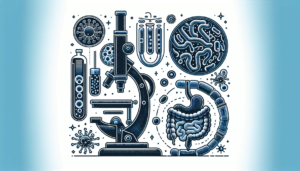Herpes on the skin is a common viral infection that affects millions of people worldwide. It is caused by the herpes simplex virus (HSV) and can manifest as painful blisters or sores on the skin. Although there is no cure for herpes, understanding its causes is crucial in preventing its transmission and managing its symptoms. In this article, we will explore the various factors that contribute to the occurrence of herpes on the skin and learn how to minimize its impact on your life.


Herpes Simplex Virus
Welcome to our comprehensive article on the Herpes Simplex Virus (HSV). In this article, we will delve into the various aspects of HSV, including its transmission routes, risk factors, signs and symptoms, recurrence triggers, diagnosis, complications, treatment, and prevention. By understanding more about this common infection, you can make informed decisions to protect yourself and others.
HSV-1 and HSV-2
There are two types of the Herpes Simplex Virus: HSV-1 and HSV-2. HSV-1 is primarily associated with oral herpes or cold sores, appearing around the mouth and lips. In contrast, HSV-2 is typically responsible for genital herpes, causing lesions in the genital area. However, it’s important to note that both types can infect the oral or genital regions.
Transmission Routes
Understanding how the Herpes Simplex Virus is transmitted is crucial to preventing its spread. The virus can be transmitted through various routes, including direct contact with infected skin or mucous membranes, sexual contact, and vertical transmission.
Direct Contact with Infected Skin or Mucous Membranes
One of the common transmission routes for HSV is direct contact with infected skin or mucous membranes. This can occur through activities such as kissing, sharing utensils or personal items, or even touching a cold sore or genital lesion. It’s essential to be cautious when in contact with someone who has an active outbreak to avoid contracting the virus.
Sexual Contact
HSV is predominantly transmitted through sexual contact. Engaging in unprotected vaginal, anal, or oral sex with an infected individual significantly increases the risk of transmission. Condoms and dental dams can provide some level of protection, but it’s important to remember that HSV can still be transmitted from areas not covered by these barriers.
Vertical Transmission
Vertical transmission refers to the transmission of HSV from an infected mother to her baby during childbirth. This can lead to severe complications for the infant if the mother has an active genital herpes outbreak near the time of delivery. It is crucial for pregnant individuals with HSV to work closely with healthcare professionals to minimize the risk to their unborn child.
Risk Factors
While anyone can contract HSV, certain risk factors can increase the likelihood of transmission or development of symptoms. These factors include engaging in unprotected sex, having multiple sexual partners, and having a weakened immune system.

Get 51% Discount If You Order Now!
Engaging in Unprotected Sex
Engaging in unprotected sex, whether it be vaginal, anal, or oral, can significantly increase the risk of contracting the Herpes Simplex Virus. Using barrier methods such as condoms and dental dams can help reduce the risk, but they do not provide complete protection.
Having Multiple Sexual Partners
Having multiple sexual partners increases the risk of exposure to HSV and other sexually transmitted infections. Each new sexual partner introduces the potential for transmission. Practicing safe sex and regularly getting tested is crucial in minimizing the risk of contracting and spreading HSV.
Weakened Immune System
Individuals with weakened immune systems, such as those with HIV/AIDS or undergoing immunosuppressive therapy, are more susceptible to HSV infections. A weakened immune system hampers the body’s ability to keep the virus in check, making recurrent outbreaks more likely.


Signs and Symptoms
Recognizing the signs and symptoms of HSV is vital for early diagnosis and prompt treatment. The most common symptoms include cold sores, genital lesions, and flu-like symptoms.
Cold Sores
Cold sores, also known as oral herpes, typically manifest as small, painful blisters around the mouth or on the lips. These blisters can be accompanied by a tingling or burning sensation before they appear. Cold sores can be recurrent, with outbreaks usually triggered by factors such as stress, illness, or sun exposure.
Genital Lesions
Genital lesions are a hallmark symptom of genital herpes. These small, painful blisters or sores can appear on or around the genitals, anus, or buttocks. Like cold sores, these lesions can recur, causing discomfort and distress. Prompt medical attention is necessary for accurate diagnosis and appropriate treatment.
Flu-like Symptoms
In some cases, individuals infected with HSV may experience flu-like symptoms, including fever, headache, muscle aches, and swollen lymph nodes. These symptoms typically arise during the primary infection but may also accompany recurrent outbreaks.
Recurrence Triggers
While the Herpes Simplex Virus remains dormant in the body, certain triggers can reactivate the virus, leading to recurrent outbreaks. Some common recurrence triggers include stress, illness, fatigue, and exposure to sunlight.
Stress
Stress is a significant trigger for many people with HSV. Emotional stress, such as anxiety or tension, can weaken the immune system and pave the way for recurrent outbreaks. Practicing stress management techniques, such as meditation or exercise, can help reduce the occurrence of outbreaks.
Illness
When the body’s immune system is busy fighting off other illnesses, it becomes more susceptible to HSV outbreaks. Common infections, such as colds or the flu, can stimulate the reactivation of the virus. Maintaining a healthy lifestyle and promptly treating any illnesses can help minimize the frequency of outbreaks.
Fatigue
Fatigue, whether due to lack of sleep or overexertion, can increase the likelihood of HSV recurrence. Getting enough rest, practicing good sleep hygiene, and avoiding excessive physical or emotional exertion can help prevent outbreaks triggered by fatigue.
Exposure to Sunlight
Excessive exposure to sunlight, particularly to the affected areas, can trigger recurrent outbreaks. UV rays can weaken the skin’s defenses, providing an opportunity for the virus to reactivate. Ensuring that the affected areas are adequately protected from the sun’s harmful rays can help reduce the occurrence of outbreaks.
Diagnosis
Diagnosing HSV requires a combination of physical examination and laboratory testing, including viral culture and polymerase chain reaction (PCR).
Physical Examination
During a physical examination, a healthcare professional will examine the affected areas for characteristic lesions or symptoms. They may also inquire about your medical history and any possible exposure to the virus.
Viral Culture
A viral culture involves collecting a swab sample of a lesion or blister to identify the presence of the Herpes Simplex Virus. The sample is sent to a laboratory for analysis, where the virus can be isolated and identified.
Polymerase Chain Reaction (PCR)
PCR is a highly sensitive laboratory technique that can detect and amplify specific DNA sequences of the Herpes Simplex Virus. It is often used in cases where viral culture results are inconclusive. PCR provides a more accurate diagnosis, especially during the early stages of infection.

Complications
While HSV infections are generally manageable, complications can arise in certain circumstances. These complications include the spread of the virus to other areas of the body, an increased risk of other infections, and rare but severe conditions such as meningitis or encephalitis.
Spread to Other Areas of the Body
In some cases, the Herpes Simplex Virus can spread beyond its initial site of infection. For instance, if genital herpes lesions come into contact with mucous membranes near the eyes, there is a risk of ocular herpes. Prompt medical attention is essential to prevent the spread of the virus to other areas and minimize complications.
Increased Risk of Other Infections
Having HSV can increase the risk of acquiring other sexually transmitted infections, such as HIV. The compromised skin barrier and weakened immune response associated with HSV can make it easier for other pathogens to enter the body. It is crucial to practice safe sex and get regular screenings to minimize the risk of multiple infections.
Meningitis or Encephalitis
Although rare, HSV can lead to serious conditions such as meningitis or encephalitis. Meningitis involves inflammation of the membranes surrounding the brain and spinal cord, while encephalitis refers to inflammation of the brain itself. These conditions require immediate medical attention and can have severe long-term effects if left untreated.
Treatment
While there is no cure for HSV, several treatment options exist to manage and alleviate its symptoms. These treatment options include antiviral medications, pain relief medications, and home remedies.
Antiviral Medications
Antiviral medications are the primary treatment for HSV infections. They work by inhibiting the replication of the virus, reducing the severity and duration of outbreaks. These medications can be taken orally or administered topically, depending on the location and extent of the infection.
Pain Relief Medications
To alleviate the discomfort associated with HSV outbreaks, over-the-counter pain relief medications such as acetaminophen or ibuprofen can be used. These medications help reduce pain, inflammation, and fever associated with the infection.
Home Remedies
While not a substitute for medical treatment, some home remedies can provide temporary relief and promote healing. These include applying cold compresses to lesions, taking warm baths, wearing loose-fitting clothing, and practicing good hygiene to prevent secondary infections.
Prevention
Preventing the transmission and spread of HSV is crucial for protecting oneself and others. Some preventive measures include practicing safe sexual practices, avoiding direct contact with lesions, and strengthening the immune system.
Safe Sexual Practices
Practicing safe sex is paramount in reducing the risk of HSV transmission. This includes using condoms or dental dams correctly and consistently during sexual activity, especially during vaginal, anal, or oral sex. Regular testing and open communication with sexual partners are also essential in maintaining sexual health.
Avoiding Direct Contact with Lesions
When someone has an active outbreak, it is crucial to avoid direct contact with their lesions or affected areas. This includes refraining from kissing, sharing personal items, or engaging in sexual activity during the outbreak. Taking these precautions minimizes the risk of transmission to oneself or others.
Strengthening the Immune System
Maintaining a strong immune system can help prevent the reactivation of HSV and reduce the frequency of outbreaks. This can be achieved through a healthy lifestyle, including regular exercise, a balanced diet, adequate sleep, stress management, and avoiding habits such as smoking or excessive alcohol consumption.
In conclusion, the Herpes Simplex Virus is a common infection that can cause cold sores and genital lesions. Understanding its transmission routes, risk factors, signs and symptoms, recurrence triggers, diagnosis, complications, treatment, and prevention is crucial in managing and preventing its spread. By following safe practices and working closely with healthcare professionals, individuals can live healthier lives while minimizing the impact of HSV on themselves and others.



